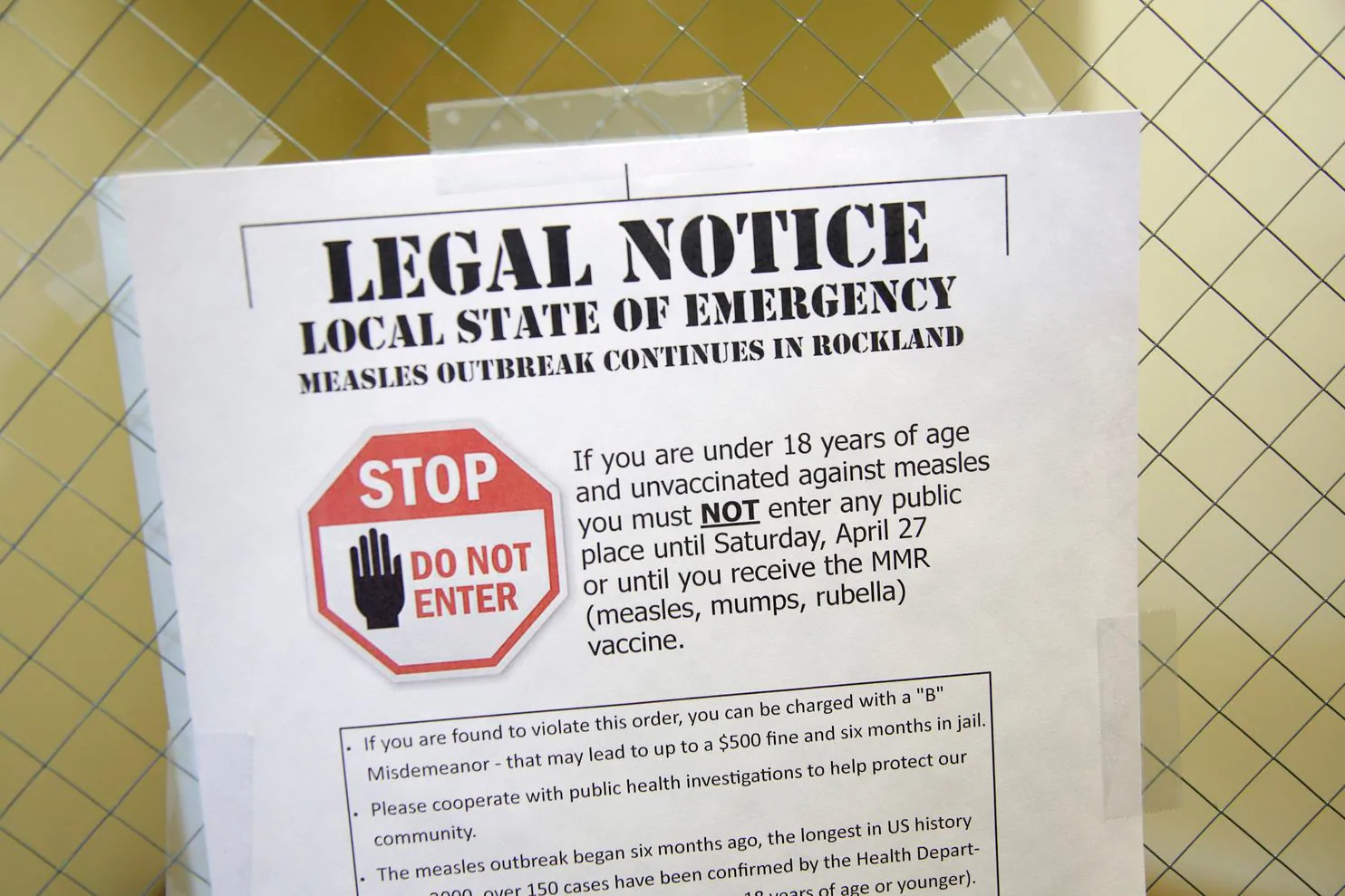For the second week in a row, U.S. health officials added dozens of new reports to the year’s list of confirmed measles cases, bringing the total to 465 — already the highest number in the past five years. It’s another significant milepost on the road to what will probably become a record outbreak after vaccines led to the disease’s “elimination” in the United States.
The number of people sickened by the highly contagious, occasionally deadly disease climbed by 78 during the first week of April, as four more states reported their first cases of 2019. Now, measles has been found in more than a third of U.S. states — up and down both coasts, and across the plains, the Midwest and the South — with most of the illnesses occurring in children.
In 2000, health officials announced that they had rid the country of measles.
Yet since then, there have been years when the number of cases has surged, notably in 2014, when 667 were reported — the highest annual total since the turn of the century. That year, the disease was reported at a rate of 1.83 cases per day. In 2019, however, the rate has increased to 4.84 cases a day. If that pace continues, this year could surpass 2014 by June.
[Orthodox Jewish yeshivas banned from sending unvaccinated students to school in New York]
As The Washington Post has previously reported, public health experts link the surge to pockets of unvaccinated children across the country, populations deemed vulnerable in large part because their parents have hesitated or refused to get them immunized. One of the main reasons is an anti-vaccination movement that has spread misinformation around the world.
“More bad news,” Peter Hotez, an infectious-disease expert at the Baylor College of Medicine, said in a Twitter post about the new CDC numbers. “A totally unnecessary and self inflicted wound, and a direct consequence of an aggressive antivax misinformation campaign.”
Hotez and his colleagues at other Texas academic centers predicted the spike in measles and other vaccine-preventable childhood diseases in a study last year. That report identified the 18 states that allowed parents to opt out of school immunization requirements for reasons of religion or philosophy.
Now, Hortez told The Post last week, of the 15 counties with the most nonmedical vaccine exemptions, half are reporting measles cases.
In a high-profile showdown in Rockland County, the epicenter of New York’s worst measles outbreak in decades, a judge has put a hold on local officials’ controversial effort to ban unvaccinated children from public places.
The judge’s ruling, handed down Friday, canceled a ban that would have remained in place for 20 more days. When he announced the ban last month, County Executive Ed Day said his goal was to stem the flow of reported measles cases, which total 167 since September.
“We will not sit idly by while children in our community are at risk,” Day said during a news conference in March.
But in the days that followed, parents from a private Waldorf school filed a lawsuit that called the ban “arbitrary” and “capricious.” The parents argued that county officials had exceeded their legal authority and that the ban “effectively prohibited their movement and denied them the right to congregate and assemble in public places.”
[Teen who defied anti-vaxx mom says she got false information from one source: Facebook]
Elsewhere in New York, especially in Brooklyn and Queens, the Orthodox Jewish community has been particularly hard hit. On Monday, New York City’s Health Department reiterated its December order to yeshivas in Williamsburg, instructing them to exclude unvaccinated children from school and day care.
“This outbreak is being fueled by a small group of anti-vaxxers in these neighborhoods,” Oxiris Barbot, the health commissioner, said in a statement. “They have been spreading dangerous misinformation based on fake science.”
Despite the evidence, the anti-vaccination movement is gaining strength. (Luis Velarde/The Washington Post)
Anti-vaccination protesters have lately taken to equating public health measures like Rockland County’s ban to Nazi persecution of Jews — a comparison that has earned the rebuke of the Anti-Defamation League and the Auschwitz Memorial and Museum.
A host of state legislatures are weighing measures that would tighten vaccination requirements or eliminate the nonmedical exemptions that have allowed parents to avoid immunizing their children.
Meanwhile, health advocates, experts and international agencies have continued to raise alarms about “vaccine hesitancy.” The World Health Organization recently dubbed it one of the top global threats of 2019.
By Reis Thebault on April 9th
Washington Post Edition
Lena H. Sun contributed to this report.



